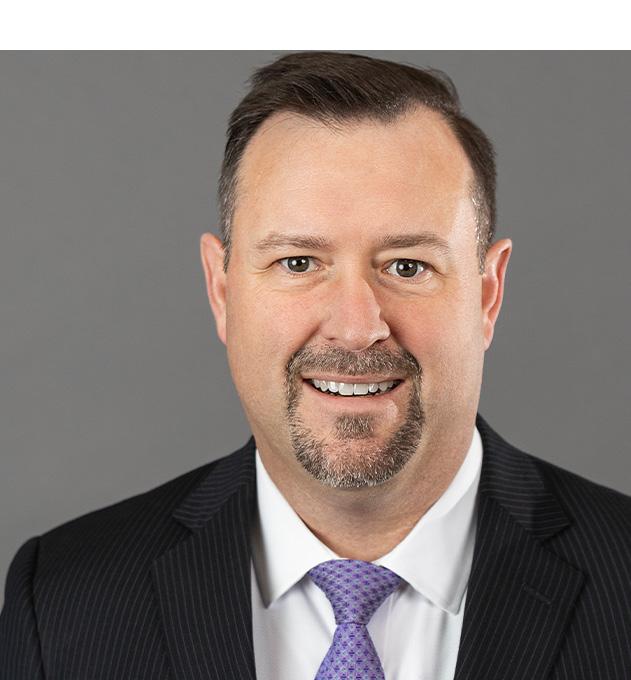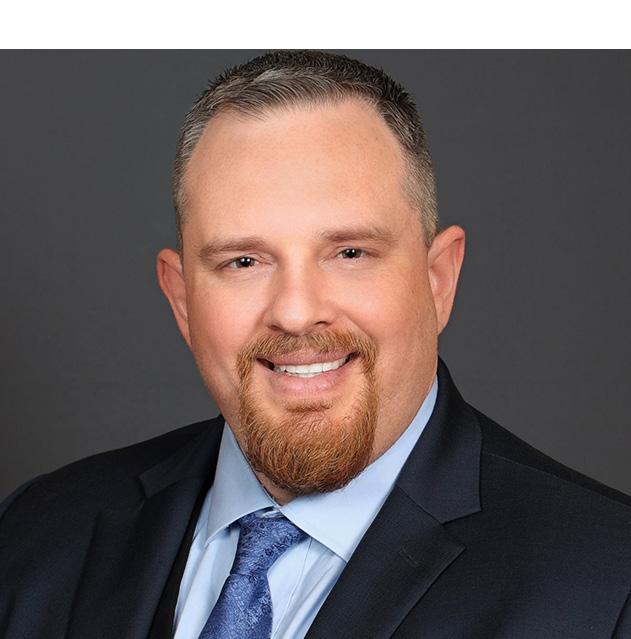





On July 1, 2024, Governor Gavin Newsom signed Assembly Bill (AB) 2288 and Senate Bill (SB) 92 to reform the Private Attorneys General Act (PAGA), the California law that allows employees to bring Labor Code violations and penalties against their employers.
The bills encourage employer compliance with the Labor Code and provide employers with tools to reduce damages related to wage and hour violations.
The new changes are not retroactive and apply only to lawsuits arising on or after June 19, 2024.
Below is a high-level summary of the changes:
• Previously, if there was a PAGA violation for a provision in the Labor Code that did not outline a specific penalty amount, the penalty was set at $100 per aggrieved employee per day. Under AB 2288, that penalty is decreased to $50 if the violation results from an isolated, nonrecurring event that was less than 30 consecutive days or four consecutive pay periods.
• For wage statement violations (except incorrect employer name and address), the civil penalty is now reduced to $25 per employee per pay period, provided that the employee could promptly and easily determine from the wage statement alone the accurate, required information. If a wage statement violation is related to an employer name or address,
the penalty is $25 per employee per pay period if the employee would not be “confused or misled about the correct identity of their employer.”
• Civil penalties are now capped at 15% of what the employer would otherwise be assessed if the employer takes “all reasonable steps” to comply with the provisions alleged to have been violated prior to receiving notice of a Labor Code violation. “All reasonable steps” may include periodic payroll audits, updated policies, training supervisors on Labor Code compliance, and taking appropriate corrective action with regard to supervisors. Civil penalties are now capped at 30% if the employer takes “all reasonable steps” to come into compliance within 60 days after receiving notice.
• If an employer has taken “all reasonable steps” to come into compliance and cures the Labor Code violation, the employer will not be required to pay any PAGA penalties. If the employer has not taken “all reasonable steps” but has otherwise cured any violations, the penalties are now capped at $15 per pay period.
• The new bills do not allow employees to stack penalties on their employer for certain wage violations that are not willful or intentional if a penalty has already been collected for the same underlying unpaid wage violation.
• Employers that pay on a weekly basis will now receive a 50% reduction in the per-pay-period penalties. This change resolves an issue under the previous law, whereby employers that paid employees more frequently had higher potential
penalties since the penalties were based upon the number pay periods.
• There are now higher penalties ($200 per violation) on employers who act maliciously, fraudulently or oppressively in violating labor laws. The $200 penalty also applies if an agency or court, within the last five years, has found that the employer’s policy or practice that gave rise to the violation is unlawful.
• The new law provides that more of the penalty money goes to employees, by increasing the amount allocated to employees from 25% to 35%.
• SB 92 provides the process to cure a non-wage statement violation, which includes: paying any unpaid wages going back three years; pay 7% interest; provide any liquidated damages required under statute; and cover reasonable attorneys’ fees and costs. For wage statement violations, employers may cure a name and address violation by providing employees the correct information. For any other wage statement violations, the employer must provide three years of corrected wage statements, which can be done digitally in certain cases.
• SB 92 expands which Labor Code sections can be cured. Previously, the following twelve sections were non-curable: sections 226 (wage statements); 226.7 (meal and rest breaks); 227 (wage withholdings); 227.3 (paying out unused vacation upon termination); 500 (workday and workweek periods);
512 (meal periods); 513 (makeup time); 1194, 1197, and 1197.1 (minimum wage remedies); and 2800 and 2802 (indemnification).
• SB 92 allows for early evaluation and settlement procedures for curable provisions of the Labor Code. Starting October 1, 2024, a new version of Labor Code section 2699.3 will take effect, which, among other changes, will allow the Labor & Workforce Development Agency to dismiss a wage statement claim if the agency determines that it has been cured.
Relief and Standing
• AB 2288 allows courts to provide injunctive relief to compel employers to implement changes in the workplace to remedy labor law violations.
• AB 2288 requires the employee to personally experience the alleged violations within the statute of limitations in order to bring a claim.
More information about the PAGA reform bill can be found here.
Note:
Schools should regularly review and audit their wage and hour practices and policies to check for any compliance issues. LCW attorneys are available to assist schools with any questions about the PAGA reform bills and are able to advise on steps schools may want to consider taking in response to the changes in the law.










Golden Queen Mining Company, LLC is a California company that operates the Soledad Mountain gold and silver mine in Mojave, California. In March 2019, Carlos Ramirez was hired by Queen Mining as a nonexempt hourly employee to perform electrical work. Ramirez’s employment ended in August 2022. As part of Queen Mining’s onboarding process, new employees were provided with many documents including an employee handbook containing an arbitration agreement.
In October 2022, Ramirez filed a class action complaint against Queen Mining alleging causes of action for failure to pay overtime wages, pay minimum wages, provide meal periods, provide rest periods, provide accurate wage statements, indemnify employees for expenses incurred in performing their jobs, and pay for accrued, unused vacation time upon termination.
Queen Mining filed a motion to compel arbitration, which included a declaration from Queen Mining’s human resources manager who asserted that Ramirez signed an arbitration agreement on or around March 28, 2019. Attached as exhibits were copies of a two-page arbitration agreement, a handbook acknowledgement purportedly signed by Ramirez and dated March 28, 2019, and six other documents purportedly signed by Ramirez and dated March 28, 2019.
Ramirez opposed the motion, claiming that Queen Mining could not prove the existence of the arbitration agreement because Queen Mining failed to authenticate the arbitration agreement, and even if authentic, the signature on the employee handbook acknowledgment did not constitute valid agreement to arbitration. In support of his arguments, Ramirez provided a sworn declaration where he stated that he did not recall ever being presented with an arbitration agreement, he did
not recall ever signing an arbitration agreement, he was not informed about the arbitration agreement, and until his counsel explained it to him, he did not know what arbitration was. Ramirez declared that if someone had explained what an arbitration agreement was, he would not have signed the agreement.
The trial court denied the motion to compel arbitration, finding that Queen Mining failed to demonstrate the existence of an executed arbitration agreement. The trial court noted that including the arbitration agreement in the handbook was distinguishable from previous cases where the arbitration agreement was a separate signed document. Queen Mining appealed.
On appeal, the Court of Appeals considered the evidence presented by Queen Mining, and concluded that Queen Mining met its burden of showing the existence of a written arbitration agreement. The Court reasoned that the handbook acknowledgment contained the following language in bold and underlined: “My signature also acknowledges and certifies that I understand and voluntarily agree to terms of the Company Arbitration Agreement.” The acknowledgment also directed employees to contact Human Resources with any questions regarding the contents of the handbook. Queen Mining had evidence that Ramirez signed the acknowledgment. In addition, Queen Mining had evidence that Ramirez completed the New Hire Orientation Checklist, which included his handwritten initials next to “Arbitration Agreement” and “Handbook Acknowledgement.”
Although Ramirez claimed he did not remember signing the acknowledgement, the Court of Appeals found insufficient evidence that there was a dispute about the existence of the arbitration agreement. The Court of Appeals reasoned that Ramirez did not provide evidence showing that his signatures or initials were inauthentic or forged. Therefore, there was no dispute as to the authenticity of the signature on the acknowledgement. The Court of Appeals determined that the inability to recall signing a document is not enough to establish that a contract was not formed.
The Court of Appeals reversed the trial court’s ruling and remanded the case for further proceedings.
Note:
This case establishes that, even if an employee cannot remember signing an arbitration agreement, if the employer has concrete evidence that the employee signed the agreement, that is enough.
Ramirez v. Golden Queen Mining Co., LLC (2024) 102 Cal.App.5th 821.





Erika Paleny began working for Fireplace Products, U.S., Inc. as a full-time Administrative Assistant in May 2018. In October 2018, Paleny informed her employer that she had begun procedures necessary for egg retrieval.
In November 2018, Paleny’s supervisor informed her that she disapproved of the procedures, and allegedly harassed and scolded Paleny for needing time off for the procedures. In early February 2019, Paleny informed her supervisor that she would need additional time off for another appointment related to her procedures. Paleny alleged that her supervisor became angry and Paleny’s employment was terminated later that same day.
Paleny brought 10 causes of action against her employer and supervisor, including harassment, discrimination, retaliation, and failure to accommodate claims under the Fair Employment and Housing Act (FEHA) based on sex (i.e., due to pregnancy).
The supervisor and employer moved for summary judgment, arguing that Paleny could not establish she had a characteristic protected by the FEHA because she was never pregnant or attempting to get pregnant, nor was she disabled or requesting accommodations during her employment. In response, Paleny argued that freezing her eggs for potential future use qualified as a pregnancy “related medical condition.”
During her deposition, Paleny explained that she froze her eggs possibly to donate to others and possibly for her own potential future use. Paleny also admitted that she never requested a leave of absence for a medical condition, nor did she ever need a full day off in the egg retrieval process. She admitted that although she had to take injections to prepare for the procedure that made her nauseated, she did not consider that a disability and she was able to work through it.
The trial court granted the defendants’ motion for summary judgment, finding that FEHA’s protections did not extend to medical procedures
to donate eggs to others and freeze them for her own possible pregnancy at some unknown time in the future. The trial court found that Paleny could not establish that she suffered from a pregnancy related medical condition nor could she establish that she was disabled or had engaged in protected activity under the FEHA.
On appeal, Paleny argued that the trial court interpreted the FEHA too narrowly, improperly excluding future pregnancies from its protections. The Court of Appeals noted that all of Paleny’s claims derived from the contention that she was either pregnant or disabled by pregnancy, and the Court of Appeals found that neither was the case. Based on Paleny’s own admissions, Paleny said that she was not pregnant at any time during her employment, and she did not disclose any disabilities or any conditions that impacted her ability to work. Likewise, Paleny’s decision to freeze her eggs did not meet the FEHA’s definition of “disabled by pregnancy,” which occurs when a woman is unable to work or perform essential functions of her job because of pregnancy.
The Court of Appeals also found that Pelany was not suffering from a medical condition related to pregnancy. The Court reasoned that the FEHA’s definition of a related medical condition is “any medically recognized physical or mental condition related to pregnancy, childbirth, or recovery from pregnancy or childbirth. This term includes, but is not limited to, lactation-related medical conditions such as mastitis; gestational diabetes; pregnancyinduced hypertension; preeclampsia; post-partum depression; loss or end of pregnancy; or recovery from loss or end of pregnancy.” The FEHA also defines “condition related to pregnancy, childbirth, or a related medical condition,” as a “physical or mental condition intrinsic to pregnancy or childbirth that includes, but is not limited to, lactation.” Here, Paleny’s circumstances did not meet these definitions. The Court of Appeals was not willing to further expand these definitions and upheld the trial court’s ruling.
Note:
As of January 1, 2023, FEHA protected classifications expanded to include “reproductive health decisionmaking,” which would cover egg retrieval procedures. The Court noted that this protection did not apply here because the alleged conduct occurred in 2019, long before the new law went into effect. Schools should keep in mind that this conduct would likely result in a different outcome today.
Paleny v. Fireplace Products U.S., Inc. (June 27, 2024) ___Cal.
[2024 Cal. App. LEXIS 410].
Rebecca Cartee-Haring was hired by Central Bucks West High School in 2007, ultimately serving as the Head Coach of the girls’ lacrosse team. The School makes year-to-year coaching appointments and reserves the right not to reappoint a coach from year to year.
The captain of the girls’ lacrosse team during the 20182019 athletic season was a student identified as Rita Roe. Conflicts between Cartee-Haring and Roe arose, and Roe’s mother, Jane Doe, claimed that Cartee-Haring was bullying her daughter.
Once the 2018-2019 season began, Doe continued to make allegations to the School District about how Cartee-Haring was treating her daughter. Multiple times throughout the season, Cartee-Haring told the School that she was experiencing a negative mental state and severe stress. The Director of Human Resources encouraged Cartee-Haring to use the employee assistance program.
In May 2019, the School District launched an investigation into allegations that Cartee-Haring was bullying Roe. The investigative report concluded that Cartee-Haring did not engage in any behavior that rose to the level of bullying, but, at times, did not maintain the utmost professionalism.
That summer, one lacrosse team member hosted a pool party at her family’s home. Cartee-Haring was invited and attended.
For the 2019-2020 school year, the District hired a female in her 20s as the Head Coach of the girls’ lacrosse team instead of Cartee-Haring. In May 2020, CarteeHaring filed a charge of discrimination with the Equal Employment Opportunity Commission (EEOC), which issued a right to sue letter in August 2020.
In September 2021, Cartee-Haring reapplied for the Head Coach position. In November 2021, CarteeHaring interviewed for the position. The interviewers scored the two final candidates, and Cartee-Haring received a score of 193, whereas the other candidate received a score of 203. Cartee-Haring was not selected for the position, and emailed the Director of Human Resources that she felt she had been discriminated
against due to her filing the lawsuit against the District.
The District investigated Cartee-Haring’s retaliation concerns, at first internally, and then by hiring a private law firm. Both investigations concluded that there had been no retaliation or discrimination. In June 2022, Cartee-Haring filed an amended Charge of Discrimination against the District with the EEOC and the Pennsylvania Human Relations Commission. Cartee-Haring received a right-to-sue letter from the EEOC in September 2022.
Cartee-Haring’s lawsuit alleged a host of claims, including gender discrimination, disability discrimination, and retaliation.
For the gender discrimination claim, the District argued that (1) there was no adverse employment action since Cartee-Haring’s one year contract was simply not renewed; (2) a woman was hired to replace her; and (3) even if Cartee-Haring had enough evidence to establish a gender discrimination claim, the District had legitimate, nondiscriminatory reasons for not rehiring Cartee-Haring as Head Coach, principally, her mishandling of the conflict between herself and Rita Roe.
In response, Cartee-Haring argued that (1) the nonrenewal was an adverse employment action; (2) there was an inference of sex discrimination because male coaches remained employed by the District even when they attended parties at the homes of players.
The Court agreed that nonrenewal of an employee’s contract was an adverse employment action. However, the Court concluded that Cartee-Haring failed to show that members of the opposite sex were treated more favorably. While Cartee-Haring argued that male coaches attended parties hosted by student athletes and retained their coaching positions, the Court reasoned that Cartee-Haring did not provide any evidence that the male coaches were found to have mishandled an escalating situation with a student athlete or that the male coaches were subject to an investigation for bullying a student athlete, like Cartee-Haring was in this case.
The Court also agreed that the District had a legitimate, non-discriminatory reason for terminating CarteeHaring’s employment apart from the pool party, namely, the unprofessional conduct resulting from the conflict between her and Rita Roe. The Court granted the District’s motion for summary judgment on the gender discrimination claims.
For the disability discrimination claim, Cartee-Haring argued that she was not reappointed as Head Coach due to a perceived disability. Specifically, Cartee-Haring argued that she suffered from depression and migraines, and that she sent an email to the Director of Human Resources stating that she was under severe stress, behind on her classwork, and was in great physical pain, requesting advice on how to handle the situation. The District argued that this was not enough to show that the District regarded her as having a disability, and that stress was not a disability recognized by the ADA.
The Court determined that Cartee-Haring failed to make a threshold showing that she was disabled under the ADA. While her complaint alleged that she had a mental condition resulting from her experiences as Head Lacrosse Coach, which substantially affected major life activities such as concentrating, sleeping, and interacting with others, the evidence only established that Cartee-Haring was experiencing generalized stress, which does not rise to the level of “disabled’ under the ADA. The Court also determined that the Director of Human Resource’s statement encouraging Cartee-Haring to use the employee assistance program did not establish the School as regarding Cartee-Haring as having a disability. The Court dismissed the disability discrimination claims.
Lastly, the Court considered Cartee-Haring’s claims that she was retaliated against for filing her initial lawsuit when the District chose not to hire her as Head Coach for the 2021-2022 season. The District argued that its decision to not hire Cartee-Haring a second time was unrelated to her filing the lawsuit. The lawsuit was filed in April 2020, and she applied for the job in September 2021, a 17-month difference, which was too long to establish a causal link for retaliation. Even assuming that Cartee-Haring could establish a causal connection, the District argued it had a legitimate non-discriminatory reason for not hiring her: the interview panel used objective scoring criteria and another candidate scored higher than Cartee-Haring.
The Court agreed with the District, finding no causal connection between the lawsuit and the decision not to hire Cartee-Haring. The Court likewise agreed with the District that the decision not to hire Cartee-Haring was due to objective scoring criteria when compared to the other candidate. The Court dismissed the retaliation claim.
Note:
This case provides a relevant overview of the types of claims an employee may bring when their employment contract is not renewed. Here, the School had investigated the Coach’s concerns as they arose and had documentation to support its decisions.
Cartee-Haring v. Cent. Bucks Sch. Dist. (E.D.Pa. June 11, 2024) 2024 U.S.Dist.LEXIS 103302.


Related Claims Because Private Schools Incorporated As Religious Corporations Are Exempt From FEHA.
Susana Verduzco was hired in a temporary position as a Human Resources and Payroll Administrator at St. Mary’s High School, a private religious school in California. Verduzco received positive feedback from her work, and as a result her supervisor, Monique Carter, inquired if she was interested in a non-temporary position. Verduzco affirmed her interest and was later told that she would be hired at the end of January 2023.
Shortly after this exchange, Verduzco informed Carter that she was pregnant. Verduzco said that Carter reacted negatively to the news, was surprised, and indicated that she would need to speak with the School’s President regarding Verduzco’s employment, as the pregnancy news was a “new revelation.”
Carter later informed Verduzco that they would not be hiring her as a permanent employee as the School needed someone who could be present for the entire school year. Verduzco was informed that if the position was available after she had her baby she could apply then.
Verduzco argued that after disclosing her pregnancy, Carter began regularly making inappropriate comments about her pregnancy. Verduzco further argued that Verduzco’s replacement made an inappropriate comment about Verduzco’s breasts, which Verduczo reported to Carter. Carter said that the employee meant no harm by the comment, though Carter spoke to the employee and told the employee that some people may find those comments offensive.
After Verduzco delivered her baby, she reached out to Carter to inquire about the non-temporary position but received no response. She then contacted the staffing agency that had placed her and was told she was no longer needed at the School.
As a result, Verduzco filed a pregnancy-related action under the California Fair Employment and Housing Act (FEHA).
Verduzco argued that the School committed six FEHA violations: (1) discrimination based on her pregnancy status; (2) harassment based on her pregnancy status; (3) failure to provide protected medical leave; (4) failure to make reasonable accommodations for plaintiff's pregnancy status; (5) failure to engage with plaintiff in a process to determine reasonable accommodations for her pregnancy status; and (6) failure to take reasonable steps to prevent discrimination and harassment.
The California Fair Employment and Housing Act (FEHA) applies to public and private employers, labor organizations, and employment agencies, and provides protection from harassment or discrimination in employment because of age, ancestry, color, creed, denial of family and medical care leave, disability, marital status, medical condition, national origin, race, religion, sex, and sexual orientation. FEHA does not apply to religious associations or religious corporations not organized for private profit.
Despite this exception, Verduzco argued that St. Mary’s High School, a non-profit religious corporation, was an employer subject to FEHA. Verduzco argued, without any legal authority or explanation, that the School was acting as a nonprofit public benefit corporation rather than a religious corporation. Nonprofit public benefit corporations are not exempt from FEHA, and therefore, St. Mary’s High School should be subject to FEHA.
The Court found Verduzco’s argument unconvincing. The Court noted that the definition of employer does not concern itself with how a corporation functions but rather how it is organized. Furthermore, both a nonprofit public benefit corporation and a religious corporation must include in their articles of incorporation that they are either a “nonprofit public benefit corporation… organized under the Nonprofit Public Benefit Corporation Law” or a “religious corporation organized under the Nonprofit Religious Corporation Law.”
In this case, the School’s articles of incorporation contained language indicating that it was a religious corporation and not a nonprofit public benefit corporation. The Court thus granted the School’s motion to dismiss the FEHA claims against the School.
Note:
This case serves as an important reminder that religious schools incorporated as religious corporations are not subject to FEHA. However, it is also important to note that a court would likely find an employer who is subject to FEHA to be in violation of the act if the employer made decisions not to hire employees based on their pregnancy status.
Verduzco v. St. Mary's High Sch. (E.D.Cal. June 21, 2024) 2024 U.S.Dist.LEXIS 110243.







In 2016, Jane Doe, a 14-year-old girl who had recently immigrated to the United States from Honduras, began attending Mercy High School as a freshman. Mercy High School is an all-girls private Catholic college preparatory school in Baltimore, Maryland.
In 2015, Mercy High School hired Ernest Jackson as an Assistant Indoor Track Coach. Jackson was a childhood friend of the Athletic Director’s younger brother. Mercy High School has adopted the Archdiocese of Baltimore’s Statement of Policy for the Protection of Children and Youth (Archdiocese’s Policy). Under the Archdiocese’s Policy, before employing Jackson, Mercy High School was required to have Jackson submit to a criminal record check coupled with Criminal Justice Identification Services (CJIS) fingerprinting and provide three reference checks. Both the Archdiocese’s Policy and Maryland law prohibit schools from hiring employees who have been convicted of certain crimes. At the time Mercy High School hired him, Jackson had a lengthy criminal record including several DUIs, a domestic violence protective order, and among other convictions, First Degree Assault, which would have disqualified him from employment with Mercy High School. Despite this record, Mercy High School hired Jackson solely on the Athletic Director’s recommendation.
Shortly after Jane Doe began school, she tried out for the indoor track team – a team that Jackson coached. Over the next three years, Jackson subjected Doe to multiple forms and instances of sexual abuse, ranging from flirtation to physical sexual assault. Jackson’s repeated and on-going sexual abuse and molestation of Jane Doe resulted in physical and emotional harm to her.
Furthermore, several Mercy High School students and staff were aware of Jackson’s inappropriate attention and contact with Doe but failed to report the abuse.
Similar allegations about Jackson were also raised by another student, but the School was quick to dismiss the claim as not sexual in nature, and no further action was taken. Mercy High School’s handling of the complaint allegedly violated the Archdiocese’s Policy, as the School was required to investigate the claims, create a written report, and notify the authorities, if necessary, which the School failed to do.
In November of 2018, a group of students reported Jackson’s sexual abuse of Doe to the other track team coach, who notified the principal, who then reported the abuse to Child Protective Services. Jane Doe originally denied the allegations out of fear, but later admitted to the abuse she had suffered. Child Protective Services contacted the Baltimore Police Department who launched a criminal investigation into the matter. The Baltimore Police Department’s interviews with Mercy High School staff revealed that the faculty and staff were untrained in preventing, recognizing, and reporting child sexual abuse, which is a mandatory requirement under the Archdiocese’s Policy.
Jane Doe filed suit against Mercy High School, among other defendants. Jane Doe’s complaint alleged among other claims: (1) Negligent Hiring; (2) Negligent Supervision, Retention, and Training; (3) Negligence; (4) Gross Negligence; and (5) Breach of a Fiduciary Duty. The School moved to dismiss the complaint.
To state a claim for negligent hiring, training, or supervision, a plaintiff must show: the existence of an employment relationship, the employee’s incompetence, the employer’s actual or constructive knowledge of such incompetence, the employee’s act or omission causing the plaintiff’s injuries, and the employer’s negligence in hiring was the approximate cause of the plaintiff’s
injuries. The Court found that Jane Doe plead sufficient facts to establish that the School negligently hired and supervised Jackson when it failed to look into Jackson’s background and failed to take action after complaints were brought against Jackson. The Court allowed these claims against Mercy High School Defendants to proceed.
For a general negligence claim, a plaintiff must establish four elements: a duty owed to him, a breach of that duty, a causal relationship between the breach of duty and the harm suffered, and damages. Here, the Court recognized that a school had a clear duty to exercise reasonable care to protect a pupil from harm. In response, the School argued that the claim was duplicative of Jane Doe’s negligent hiring, training, and supervision claims. However, whether to dismiss on grounds of duplication is discretionary and the Court concluded that while the claims were similar, they were not true mirror images and that Doe had pled sufficient facts to show that the School was potentially negligent. The Court allowed the claim to proceed.
Gross negligence is a heightened form of negligence and requires a showing that there was an intentional failure to perform a manifest duty in reckless disregard of the consequences and implies a thoughtless disregard of the consequences without the exertion of any effort to avoid them. The Court determined that Jane Doe properly stated a claim for gross negligence on the basis that Mercy High School Defendants acted with reckless and/
or thoughtless disregard of the consequences when they failed to complete a background check before hiring a new employee. Furthermore, the Court concluded that the School acted in a manner utterly indifferent to the rights of its minor students when the School expounded no effort in performing a criminal record check of a readily discoverable sex offender before allowing Jackson to work with children.
A fiduciary duty is, in general, a duty to act for the benefit of another on matters within the scope of the parties’ relationship. Here, the Court was persuaded that a fiduciary duty existed between the School and its student, given the School’s special duty to protect a student from harm. Additionally, the court emphasized there was a great deal of trust and confidence that a student must place in her school by the nature of the relationship. The Court concluded that Jane Doe’s claim for a breach of fiduciary duty against Mercy High School may proceed.
Note:
The California Education Code requires private schools to obtain a criminal background check of all employees that will have contact with minors and forbids schools from hiring individuals with certain criminal records. This case is still in the preliminary stages, and the liability to the School for hiring this employee and failing to investigate these claims in accordance with its policies may be significant.
Doe v. Mercy High Sch., Inc. (D.Md. June 24, 2024) 2024 U.S. Dist. LEXIS 110364.



Nancy Ostrowski was employed by Indiana University. Ostrowski left her previous position due to her medical challenges, which included memory issues, cardiac issues, and hip arthritis. These medical issues limited Ostrowski’s ability to walk, lift, and carry items. When Ostrowski began working at Indiana University, she had a permit to park in a nearby spot reserved for those with disabilities. After parking, she would walk to her building without incident.
In 2018, Ostrowski’s position moved to a different building on campus, which was quite a bit farther from the parking spaces. On her first day working in the new building, Ostrowski had to walk up a hill and arrived at her building sweating, out of breath, and felt weak and sick to her stomach. Ostrowski spoke with the Director of Parking Operations, but was informed that closer parking was unavailable. The next two days, Ostrowski experienced similar symptoms. Ostrowski took the next day to see her doctor, who told her to take eight weeks off due to her condition. Ostrowski never returned to work and was on medical leave from July to October 2018.
On December 18, 2018, Ostrowski filed a work injury claim with the University, which the University denied. In July 2019, Ostrowski filed an application for an adjustment of the claim, effectively appealing the denial. A hearing was conducted, and the workers’ compensation hearing member concluded that Ostrowski’s struggles those three days were caused by “routine, everyday activities” that could have occurred anywhere. The fact that they occurred on campus did not make them compensable under workers’ compensation laws.
The hearing member also concluded that the injuries Ostrowski sustained were not caused by a personal injury
arising out of and in the course of her employment. “Arising out of employment” refers to the origin or cause of the injury. Here, Ostrowski failed to prove that her cardiac and arthritic conditions were caused or aggravated by her employment with the University. The Workers’ Compensation Board agreed with the hearing member and adopted the hearing member’s decision. Ostrowski appealed.
On appeal, the Court considered that an injury arises out of employment when there is a causal relationship between the injury and employment. Injuries relating solely from risks personal to the claimant are entirely unrelated to the circumstances of employment, and are therefore universally non-compensable. The Board determined that Ostrowski’s symptoms were temporary, caused by her pre-existing health conditions, and could have occurred anywhere.
On appeal, Ostrowski argued that her symptoms were not caused by everyday activities, but by a “forced march” and “arduous trek” to her building. The University did not dispute that Ostrowski experienced temporary symptoms during her walk, but claimed that her walk to and from her office was every day and routine. The Court agreed. The Court reasoned that the campus is hilly and therefore the hilly walk to the office was routine.
The Court upheld the Board’s decision to deny Workers’ Compensation.
Note:
An employee is eligible for coverage under the workers’ compensation statute if he or she sustains an injury in the course of or arising out of employment, regardless of fault. This case is an important reminder that where the injury results from a personal risk, i.e., related solely to the employee’s person, the injury may not be compensable.
Ostrowski v. Ind. Univ. (Ct.App. May 28, 2024) 2024 Ind. App. Unpub. LEXIS 653.
The U.S. Department of Education’s Office for Civil Rights (OCR) recently announced resolutions to a number of complaints at colleges and universities across the country related to concerns about various institutions’ response to the IsraelPalestine Conflict.
OCR is responsible for enforcing federal education laws, including Title VI, which prohibits recipients of federal funding from discriminating on the basis of race, color, and national origin.
The University of Michigan received 75 reports alleging shared ancestry discrimination and/or harassment over the last two years. OCR reviewed these reports and found no evidence that the University complied with its Title VI requirements to assess whether incidents individually or cumulatively created a hostile environment for students, faculty, or staff. OCR also found no evidence that the University took steps to end the hostile environment, remedy its effects, and prevent its recurrence.
For example, in October 2023, protestors shouted on the central campus about “Nazi liberation,” and records show that the University only forwarded the reports to public affairs for response. Similarly, the University did not assess the existence of a hostile environment or take remedial action after a Jewish student reported feeling targeted and harassed on social media when the student’s graduate instructor posted on their Instagram story with a discussion of proPalestinian topics, including tagging the student in the posts asking for the student’s opinions. The University told the student that there was no option for formal conflict resolution because social media is largely protected as free speech.
Finally, when a student reported that someone yelled an accusation at her that she had “terrorist” friends because she participated in a proPalestinian protest, the University reported that it held “restorative circles” to address the incident, but took no further action to address the effects on students.
To resolve the Title VI concerns, the University committed to reviewing the cases for each report; reporting to OCR on its responses to reports of discrimination and harassment for the next two years; revising policies; training employees; and administering a climate assessment.
The resolution letter can be found here; the resolution agreement can be found here.
The City University of New York (CUNY) entered into a resolution with OCR, resolving nine pending claims across multiple campuses and colleges. The complaints included events dating back to 2021, including when students and faculty disrupted two different sessions of a required college course by commandeering the class time to call for the decolonization of Palestine. Several students expressed that the disruption made them fearful and at least one student left class early. A Jewish student said that when Jewish students tried to speak, others told them they should be listening, not speaking. OCR found that CUNY failed to investigate whether this created a hostile environment for Jewish students and took no action to redress the situation.
In the resolution, CUNY committed to reopening or initiating investigations of claims and reports alleging discrimination and harassment based on national origin; providing OCR with the results of each investigation and any remedial action; providing training; administering a climate survey; and continuing third-party reviews of CUNY’s policies.
The resolution letter can be found here; the resolution agreement can be found here.
Lafayette College entered into a resolution agreement with OCR following OCR’s investigation into the College’s response to an October 25, 2023 protest on campus and subsequent events.
OCR found that the College records showed inconsistent responses to the same conduct depending on whether it occurred on or off campus. For example, the College responded to a student protester who carried a sign during a campus protest by repeatedly meeting with the student to discuss the harm the phrase on the sign could inflict and securing a commitment
from the student never to use the phrase again in future campus protests. However, the College did not respond to reports of use of the same phrase in social media or to other reports of social media content that students alleged had created a hostile environment for them. In the resolution, Lafayette committed to reviewing its responses to previous reports of discrimination and harassment; reviewing and revising its policies; and providing training.
The resolution letter can be found here; the resolution agreement can be found here.
Brown University entered into a resolution agreement with OCR following OCR’s investigation into alleged harassment of students based on national origin. In this settlement, OCR noted that Brown had taken proactive steps to support a non-discriminatory campus, including updating its policies and procedures in February 2024, providing investigators with training specifically addressing shared ancestry discrimination, and providing student and staff workshops on combatting anti-Semitism and anti-Muslim hate in February and March 2024.
Nonetheless, Brown received over 75 reports of alleged anti-Semitic, anti-Palestinian, and anti-Muslim harassment against students from October 2023 through March 2024, and the University appeared to have taken
little or no action in response other than to acknowledge receipt, list resources, and request to meet with the complainant.
These reports included: allegations that students pointed at a Jewish classmate’s Star of David jewelry and yelled “Zionist pig Jew;” a Palestinian-American student’s roommate berated them about their PalestinianAmerican identity for weeks; and students blocked a Jewish classmate from attending a pro-Palestinian rally.
OCR found considerable variation among the halfdozen university entities responding to the reports, leaving students and staff without consistent redress. In the resolution, Brown committed to revising its policies and procedures, conducting training, maintaining records related to complaints or reports of discrimination, reviewing the University’s response to complaints during the 2023-2024 and 2024-2025 academic years, and analyzing the results of, and creating an action plan in response to climate surveys.
The resolution letter can be found here; the resolution agreement can be found here.
Note:
While many private schools do not receive federal funding and are not under the enforcement of OCR, these four resolutions provide invaluable guidance for how schools should and should not respond to complaints of discrimination based on shared ancestry.
• Several California cities and counties implemented their local minimum wage increases on July 1 rather than January 1. Among these cities and counties are Alameda, Berkeley, Emeryville, Fremont, Los Angeles, Los Angeles County, Malibu, Milpitas, Pasadena, San Francisco, Santa Monica, and West Hollywood. Schools located in these areas should be prepared for the mid-year local minimum wage rates going into effect.
• Governor Gavin Newsom recently signed Assembly Bill 1955, prohibiting California public school districts from requiring teachers to inform parents if their child asks to use a name or pronoun different than what was assigned at birth, or if they engage in activities and use space designed for the opposite sex. This law comes after at least seven school districts passed parent notification policies in the last year. The new legislation also requires the California Department of Education to provide resources to parents and students to help them discuss gender and identity. Although the law does not apply to private schools, it provides helpful guidance for private schools implementing their own gender identity and parent notification policies.
• Federal judges in Louisiana, Kentucky, and Texas recently challenged the Biden Administration’s changes to Title IX’s regulations, which are set to go into effect on August 1, 2024, and aim to provide protections to LGBTQ+ students, pregnant and parenting students, and changes how colleges must respond to reports of sexual misconduct. Those three decisions have temporarily blocked the regulations in 15 states. At least three other similar lawsuits have been filed, with decisions expected in the coming weeks. The House of Representatives also recently voted to block the new regulations from taking effect, though it is unlikely that the resolution of disapproval will move forward in the Democratic-controlled Senate and the White House has stated that Biden would veto the measure. LCW will continue to monitor the enforcement of these regulations, which may make their way to the Supreme Court.
In Sylvania, Ohio, all public school students are transported directly to and from their school with a maximum ride time of about 30 minutes. Students traveling to Sylvania’s St. Joseph Elementary, on the other hand, are picked up in the morning much earlier than their morning bell time, taken with high school students to a high school, transferred to another bus, and then taken to their elementary school.
Plaintiffs, parents of children who attend St. Joseph's, claim these differences are unlawful under the Equal Protection Clause and the Free Exercise Clause of the Ohio Constitution. Defendants, the Sylvania School District, claim that the District bases its plan largely on geography, factoring in the overriding goal of safety for all students. Students attending nonpublic schools are transported to a centralized hub, where they board buses that take them directly to their nonpublic school of choice.
Both parties filed motions for summary judgment. The parents also asked the Court for a permanent injunction, barring the District from continuing the transportation plan and requiring the District to bus their children directly to their schools. Plaintiffs suggested that one way to achieve this goal would be to stop offering bus services to high school students or employ a fleet of school transportation vans to transport nonpublic school students.
Parties seeking an injunction have to show by clear and convincing evidence that they are entitled to relief under applicable statutory law, that an injunction is necessary to prevent irreparable harm, and that no adequate remedy at law exists.
In Ohio, to succeed on an Equal Protection claim, the party challenging the law must prove the law unconstitutional beyond a reasonable doubt. When legislation infringes upon a fundamental constitutional right or the rights of a suspect class, the law will be evaluated under “strict scrutiny,” the highest standard of review. The presumption under strict scrutiny is that the law is invalid
unless the government can show it is narrowly written to serve a compelling state interest.
Here, the Court found that the nonpublic school students were not part of a suspect class and that there is no fundamental right to education. As such, the law was reviewed under “rational basis” review, meaning that so long as the law is rationally related to a legitimate government interest, it would be upheld. Under rational basis review, a court grants substantial deference to the state.
In light of this framework, the Court determined that the government had a legitimate interest in conserving its limited fiscal resources. The Court did not consider whether the District’s plan was the most efficient way to transport public and nonpublic students. Rather, it only considered whether it was rationally related to conserving the District’s fiscal resources. The Court found it reasonable that it was more efficient for the District to have the dispersed nonpublic and community school students, who attend 17 different schools, taken to a central collection point before transporting them to their individual schools. Accordingly, the Court upheld the District’s plan as to the Plaintiffs’ Equal Protection claim.
In order to state a prima facie Free Exercise claim, a plaintiff must show that their religious beliefs are truly held and that the governmental enactment has a coercive affect against their practice of religion.
Here, there was no dispute that Plaintiffs claimed a sincerely held religious belief. At the same time, the Court found no evidence that the Plaintiffs were compelled to do anything forbidden by their religion or that a government action has caused them to refrain from doing something required by their religion. The Plaintiffs chose a Catholic education for their children because of their personal Catholic faith, but the inconveniences of the bus scheme did not require them to affirm or disavow a belief forbidden or required by their religion. Therefore, the Court found the transportation plan did not violate the Plaintiffs’ free exercise of religion. The Court found in favor of the District and dismissed the Plaintiffs’ complaints.
Swiech v. Bd. of Educ. of the Sylvania City Sch. Dist. (Ct. Com.Pl. Mar. 19, 2024) 2024 Ohio Misc. LEXIS 117.
• A group of students, faculty, and alumni of The Northwestern University Pritzker School of Law filed a lawsuit against the University alleging unlawful discrimination in its hiring and selection practices, in violation of Title VI and Title IX. The complaint states that Northwestern’s law school has a hiring mandate that intentionally favors Black, Hispanic, Asian, women and LGBTQ+ faculty candidates. The complaint alleges that only two white men, both in the “high demand, low supply field” of tax law, received job offers from Northwestern during the 2021-2022 hiring cycle, while just one white man received an offer during the 2022-2023 cycle, and no white men received offers during the 2023-2024 cycle. The group also claims that the student editors of the Northwestern University Law Review discriminate on the basis of race and gender, giving preference to minority applicants. LCW recently covered a similar case brought by an NYU law student about NYU’s law review selection process.
• Two former professors at the University of California, Riverside were awarded $6.1 million in damages by a jury that found the professors were retaliated against in violation of the California Whistleblower Protection Act. The professors made official complaints that their department chair was engaged in billing fraud, misused a $15 million state grant, and had conflicts of interest with the pharmaceutical industry. The professors claimed that after making the complaints, the department chair retaliated against them, making their working conditions intolerable. After raising the issues about their supervisor, one of the professor’s duties and salary were reduced indefinitely. The other professor was removed as vice chair of the health program.
• The U.S. Department of Education’s Office of Civil Rights recently informed Berkeley Unified School District that it would investigate charges that the District failed to respond properly to rising incidents of anti-Semitism in its schools. OCR is investigating a complaint filed in February 2024, which states that bullying and harassment of Jewish students started after the October 7 massacre, including during protests and walkouts where students apparently yelled anti-Semitic phrases. The complaint was expanded in May to include concerns raised about recent school board meetings that allegedly included attacks on Berkeley Jewish parents by Berkeley Unified faculty members.
• The University of North Carolina at Chapel Hill decided it would not renew the contract of an economics professor at the University’s business school after the professor had been at the University for the last 18 years. In April, the professor was notified that his classes had been secretly recorded by a camera in his lecture hall, and that footage of those lessons had been used in a professional review. The review was prompted after the University received complaints about the professor’s class content and conduct. The professor has since raised concerns that the “concerning class content” was related to his support of LGBTQ+ rights and claims that the Equal Employment Opportunity Commission has launched an investigation. Although no lawsuit has been filed to date, LCW will monitor this matter.
Establish, implement, and maintain a Workplace Violence Prevention Plan, and train employees on the plan by July 1, 2024. (California Labor Code section 6401.9)
Update Employee and Student/Parent Handbooks:
• The handbooks should be reviewed at the end of the school year to confirm that the policies are legally compliant, consistent with the employment agreements and enrollment agreements that were executed, and current with the latest best practice recommendations. The school should also add any new policies that it would like to implement upon reflection from the prior school year and to prepare for the upcoming school year.
Conduct review of the school’s Bylaws (does not necessarily need to be done every year).
Review of insurance benefit plans:
• Review the school’s insurance plans, in order to determine whether to change insurance carriers. Insurance plans expire throughout the year depending on your plan. We recommend starting the review process at least three months prior to the expiration of your insurance plan.
• Workers Compensation Insurance plans generally expire on July 1.
• Other insurance policies generally expire between July 1 and December 1.
Members of Liebert Cassidy Whitmore’s consortiums are able to speak directly to an LCW attorney free of charge to answer direct questions not requiring in-depth research, document review, written opinions or ongoing legal matters. Consortium calls run the full gamut of topics, from leaves of absence to employment applications, student concerns to disability accommodations, construction and facilities issues and more.
Each month, LCW presents a monthly timeline of best practices for private and independent schools. The timeline runs from the fall semester through the end of summer break. LCW encourages schools to use the timeline as a guideline throughout the school year.
Conduct staff trainings, which may include:
• Sexual Harassment Training:
A school with five or more employees, including temporary or seasonal employees, must provide sexual harassment training to both supervisory and nonsupervisory employees every two years. Supervisory employees must receive at least two hours and nonsupervisory employees must receive at least one hour of sexual harassment training. (California Government Code section 12950.1.)
• Mandated Reporter Training:
Prior to commencing employment, all mandated reporters must sign a statement to the effect that they have knowledge of the provisions of the Mandated Reporter Law and will comply with those provisions. (California Penal Code section 11166.5.)
• Risk Management Training such as Injury and Illness Prevention and CPR.
Distribute Parent/Student Handbooks and collect signed acknowledgement of receipt forms, signed photo release forms, signed student technology use policy forms, and updated emergency contact forms.
A Director of Admission reached out to LCW with a question about the School’s admissions process. Currently, the School has an inquiry form that requires applicants to provide their ethnicity. The Director of Admission asked whether this question should be removed from the inquiry form.
The LCW attorney advised that the School should not require applicants to state their ethnicity on the intake form. Although the recent Supreme Court case regarding admissions did not specifically apply to private K-12 schools, the attorney advised that it is possible there will be cases at the state level challenging admissions policies that seem to factor in the applicant’s race or ethnicity.
The attorney suggested that if the School wants to collect this information, then it should make the question optional and should collect it in a way that disaggregates it from the specific candidate. That way, the School can have the numbers/statistics on applicant ethnicity, but will not identify a specific applicant by his or her identity. That is a less risky way to collect this information. Of course, applicants might still discuss their ethnicity or race in their application in terms of an essay topic, or by indicating what types of affinity groups they are already involved in, but that is different from the School requiring this information. The attorney also advised that some applicants might prefer not to identify their race or ethnicity.

